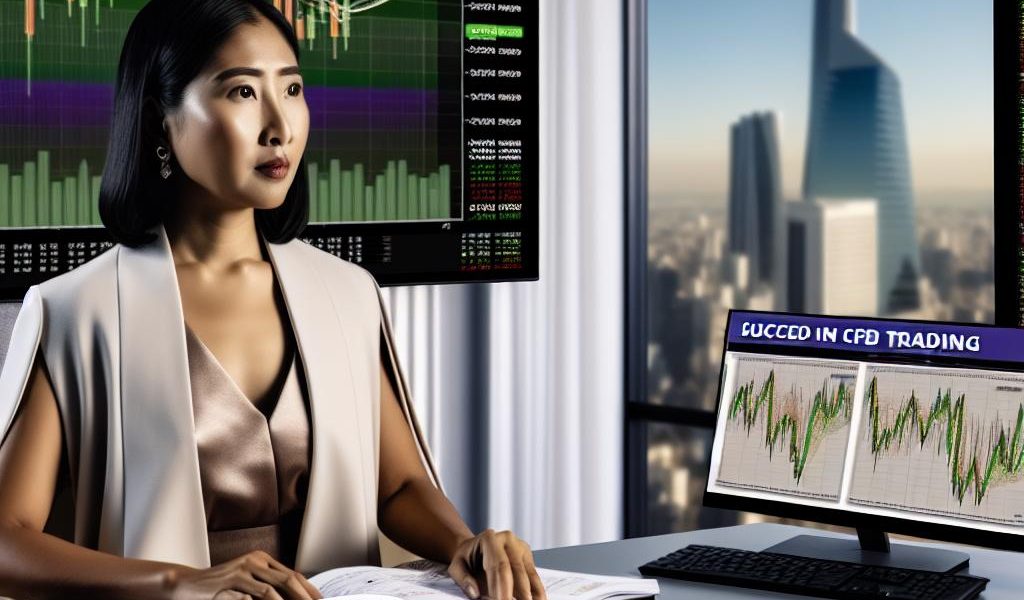
How to become a more successsfull CFD trader?
admin - April 2, 2025Understanding the Basics
To engage effectively in CFD (Contract for Difference) trading, acquiring a fundamental comprehension of CFDs and their operational framework is indispensable. A CFD represents a financial derivative that enables traders to speculate on the price variations of assets without owning the actual underlying asset. This provides an opportunity to trade based on the price movements of diverse financial instruments such as stocks, commodities, indices, and currencies. It is important to note that engaging in CFD trading entails a high risk level; hence, an in-depth grasp of the trading mechanisms involved is vital. For more insights into CFD trading and other financial services, consider reviewing resources like r4i-it.com.
Choose a Reliable Broker
Selecting the right broker is a critical component of achieving success in CFD trading. When choosing a broker, it is imperative to evaluate several factors, including regulation, the trading platform, fees, available markets, and customer support. Opting for a broker regulated by a respected financial authority is highly recommended, as this provides an added assurance of security in your trading operations. Reputable brokers often provide a user-friendly trading platform and have transparent fee structures that are essential for effective trading.
Develop a Robust Trading Strategy
Creating a well-structured trading strategy is key to thriving as a CFD trader. A robust strategy should encompass distinct trading objectives, risk management tactics, and defined criteria for entering and exiting trades. It is crucial to routinely evaluate and enhance your strategy to align with changing market dynamics. Integrated approaches using technical analysis —which includes scrutinizing price charts and indicators— together with fundamental analysis —which focuses on assessing economic data and news— can furnish a holistic trading perspective.
Managing Risk Effectively
Managing risk efficiently is a cornerstone of achieving success with CFD trading. The leverage involved in CFDs offers the potential for enhanced returns; however, it concomitantly elevates risk levels. One effective risk management technique is employing stop-loss orders, which automatically terminate a trade when the market shifts contrary to your position by a predetermined margin. It is also crucial to ensure that you trade only with funds you can afford to lose to avoid severe financial setbacks and evade over-leveraging your positions, which could amplify losses exponentially.
Continuous Learning and Adaptation
Operating within the financial markets requires continuous education as well as adaptability due to their ever-changing nature. Staying abreast of financial news, market assessments, and trading strategies is invaluable for a trader. Participating in trading forums and attending webinars can enhance your knowledge base substantially. Furthermore, maintaining a trading journal to systematically record trades, including both successes and failures, can be instrumental in detecting trends and honing your trading skills over time.
In addition, enriching online resources like financial content providers and brokerage firms offer extensive educational materials on CFD trading, which can further augment your understanding and preparation.
The Importance of Psychological Preparedness
Successfully trading CFDs also involves mental resilience and psychological readiness. The volatility of financial markets is considerable, and maintaining composure amidst fluctuations is crucial to avoiding impulsive decisions that could lead to financial damage. Emotional discipline helps in adhering to your defined trading strategy, preventing irrational trading moves driven by emotions such as fear or greed.
Furthermore, psychological preparedness involves accepting losses as an integral part of trading. Rather than being disheartened by losses, analyze them to identify underlying patterns or weaknesses in your trading strategy. Continuous learning from such experiences can build stronger resilience against future market swings, eventually cultivating a strategic mindset.
Leveraging Technology and Tools
In modern CFD trading, leveraging technology and analytical tools can significantly enhance trading outcomes. Advanced trading platforms often come equipped with a range of tools for technical analysis, assistance in following market trends, and formulating precise trading strategies. Utilizing charting tools, indicators, and automated trading software can enhance efficiency and decision-making precision.
Automated trading, in particular, allows traders to set specific rules for trade entries and exits, which can be executed automatically without the need for manual intervention. This eliminates emotional influence and facilitates efficient management of multiple trades simultaneously. However, it is essential to continuously monitor automated systems since unforeseen market movements could require adjustments to preset parameters.
Building a Network and Support System
Developing a network encompassing fellow traders and industry experts can be incredibly beneficial. Engaging with other traders allows for the exchange of ideas, strategies, and insights, which can refine your trading skills and strategic approach. Forums, workshops, and conferences are excellent venues for such interactions, providing platforms for learning and sharing valuable knowledge.
Moreover, having a support system, whether through mentorship or collaboration with other traders, can provide guidance and motivational support, especially during challenging periods in trading. Their shared experiences and perspectives can offer valuable learning opportunities, fostering personal growth in your trading endeavors.
Integrating these approaches and continuously evolving your understanding and skills through reliable resources like r4i-it.com will undoubtedly enhance your proficiency as a CFD trader and contribute to sustainable trading success over time.
This article was last updated on: April 2, 2025
